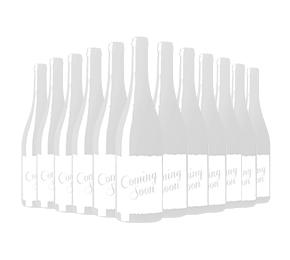Chat with Vinny
When you think of the festive season, a warming glass of mulled wine is up there with visions of log fires, Christmas markets, and all things cosy. But how do you know which wine to choose? Does the wine you choose even matter? Read our handy mulled wine guide to find out …
Is there anything better than a steaming mug of mulled wine on a cold winter’s evening? No, we didn’t think so either.
Whether you’re gathering around the bonfire on Guy Fawkes Night, enjoying a festive Christmas market, or you simply want a warming cup on a cosy evening, there’s no doubt that mulled wine is synonymous with the season.
But what is it that makes mulled wine so enjoyable?
Well … the wine you choose, of course.

Choosing the right wine matters
Every good mulled wine has one thing in common: a great base wine. Of course, the spices enhance the flavours, but the overall quality and style of the wine determines the overall taste.
A well-chosen wine add depth while balancing the rich spices, while a poorly chosen wine will leave your mulled wine flat or overly tannic.

To mull or not to mull?
Here are four wine styles that we’d recommend using as a base for your mulled wine:
Merlot
Known for its easy-going character, soft tannins and balanced acidity, this juicy red wine is the perfect base for a great mulled wine. The plum and cherry flavours, hints of chocolate and vanilla pair brilliantly with cinnamon, orange mulling spices and clove.
Top tip: look out for Merlots from Chile, Spain or Australia – these offer top value and over-deliver on ripe flavour.
Shiraz
Rich and full-bodied with a peppery kick – Shiraz adds extra layers of complexity to mulled wine. It has dark fruit flavours of blueberry, black plum and chocolate, yet still had a bright acidity to balance the spices.
Grenache
Grenache is a versatile option for mulling. Often found in southern-French blends like Châteauneuf-du-Pape, it also produces fruity, flavour-packed solo wines. In fact, Grenache already has wonderful spiced aromas, with flavours of raisin, cherry and redcurrant, and subtle peppery undertones that make it perfect for mulled wine.
Top tip: you can’t go wrong with choosing a single-varietal French Grenache.
Zinfandel
Zinfandel is another great choice for mulling – it’s medium-bodied, with intense, jammy fruit flavours, balanced with hints of spice and anise. Zinfandel comes in both dry and sweet styles, so you can choose a wine that suits your palate.
Our recommendations – 10 wines for mulled wine
Caravan Merlot – a silky, fruity, oak-aged Aussie Merlot with rich dark berry fruits.
Don Cayetano Merlot – superb, juicy-fruit Merlot from a four-time ‘Chilean Winery of the Year’ winner.
Babele Merlot – great-value Romanian Merlot that sings with spiced plum, vanilla toffee and pepper.
Pattes Noires Merlot – luscious, ripe and juicy with black and red fruits and soft tobacco spice.
The Black Stump – our all-time No.1 bestselling red. Super-charged and packed with ripe velvety fruit layered with spice.
Son of Red Shiraz – fruit-filled, bursting with bramble fruits and smoky spice.
Hacienda de Lluna Syrah – gorgeously smooth, with supple blackberry fruit and a touch of authentic Spanish spice.
Black Saint Peter – top-notch, old-vine Zinfandel with cherry and soft berry fruits and chocolatey notes.
Cabalié – our most re-ordered red – a smooth, richly spiced, Grenache-charged gem.
Le XV du Président – richly textured, with layers of ripe bramble fruit and soft tannins.
And, if you’re looking for learn more about mulled wine, including a tasty, fool-proof recipe, then read our ‘How to make mulled wine’ blog.

Is there a difference between Mulled wine and Glühwein?
Simply put, no. There’s no real difference between mulled wine and Glühwein. Glühwein is the German term, while mulled wine is the British term – both are used interchangeably, but refer to the same hot, spiced wine drink.
The basic recipe remains the same, involving red wine, spices and citrus – though you’ll find slight variations of this drink all over Europe.

Top tips for making a great mulled wine
Choose the right wine: a quality base makes all the difference – start with one of the wines above.
Use essential spices: of course, the spices you use should suit your personal preferences. But if you want to follow a traditional recipe, use cinnamon, cloves, nutmeg and anise.
Add a bit of zest: add sliced oranges or lemon zest to add brightness.
Sweeten: add honey, sliced apple or brown sugar for even sweeter mulled wine.
Avoid boiling: heat your mulled wine gently – this stops the alcohol from evaporating.
About the author
Brogan Wilson
Qualified to WSET Level 2 Wine, Brogan is a relatively new member of the team, having joined in September 2023. She previously worked as the sole copywriter at a creative marketing agency, and before that, as a primary school teacher. At Laithwaites HQ, you’ll find her growing her knowledge, asking lots of questions, and crafting both digital and print copy. An ardent red wine drinker, Brogan is also fond of Crémant.

